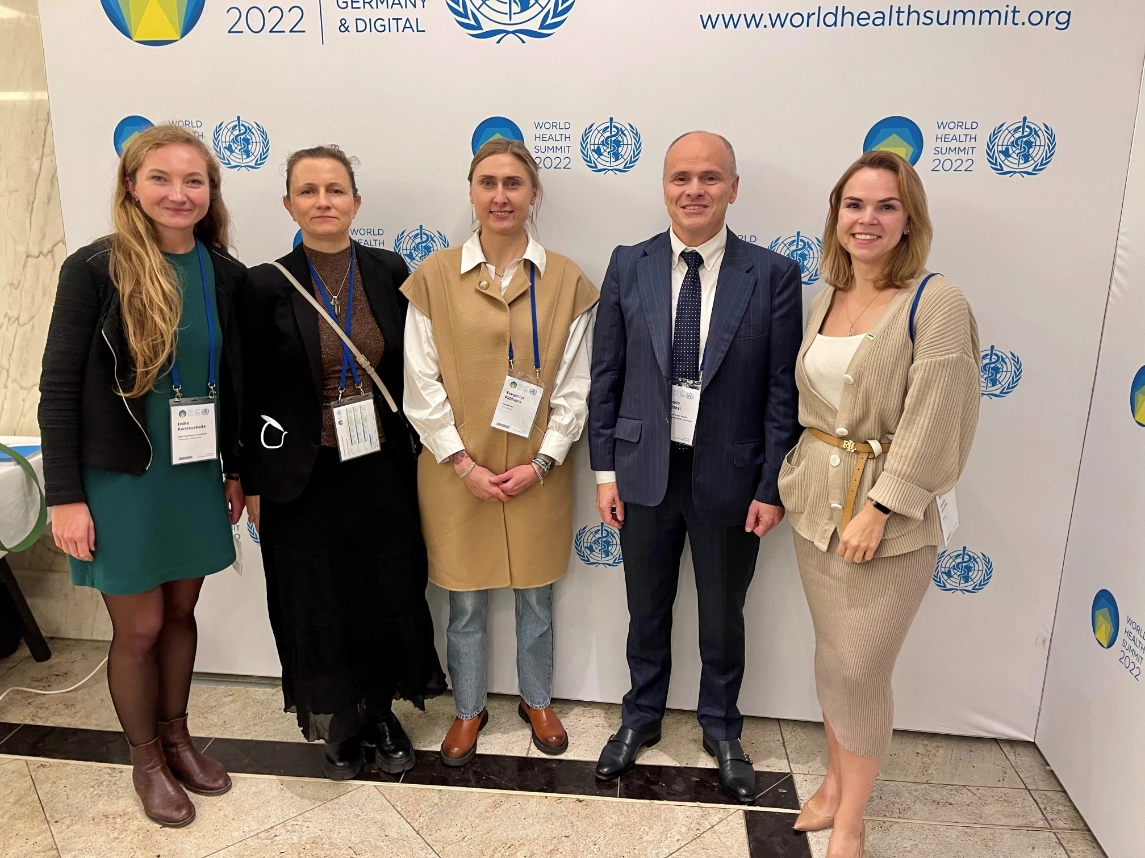
Domestic pharmaceutical company Darnitsa took part in the 5th German-East European & CIS Health Forum held by the German Eastern Business Association and the German Health Alliance.
The event took place within the framework of the World Health Summit. It gathered government officials from Germany and partner countries, as well as representatives of companies, experts and researchers. The central topic was the restoration of the healthcare industry in Ukraine and the exchange of experience on the Eastern European market.
Russia’s war of aggression against Ukraine is another major challenge for the healthcare industry of Europe after the covid-19 pandemic. The tough task for healthcare companies in these times of crisis is to maintain supply chains and critical infrastructure for all patients in the region.
The forum was attended by Dr. Thomas Stephan, State Secretary of the Ministry of Health of Germany, and Oleksii Yaremenko, Deputy Minister of Health of Ukraine for European Integration.
Oleksii Yaremenko spoke about the destruction in the medical field of Ukraine and the recovery plan. As of now, 144 hospital buildings have been totally destroyed, and more than 1,000 have been damaged. Ukraine plans not just to rebuild hospitals to the state they were in, but to modernize the healthcare system according to the best practices currently existing in Europe. The recovery plan includes continuing the large-scale medical reform, reforming medical education, strengthening the public health system, and implementing digital technologies. According to preliminary estimates, such full-scale reconstruction and transformation of the Ukrainian medicine will cost at least EUR 14.5 billion. For Ukraine, amidst the war, this is quite a significant amount, so the support of international partners is important.
Business representatives from the medical and pharmaceutical fields of Ukraine also participated in the forum. Kseniia Velychko, GR manager of domestic pharmaceutical company Darnitsa, in the panel discussion “From Immediate Aid to the Recovery of the Healthcare Sector in Ukraine: Current State, Projects and Best Cases”, told how the Ukrainian pharmaceutical industry functions under the state of martial law, what humanitarian programs are implemented by the company, and also focused on cooperation with the government, society and international partners.
“Our aim is to become a full member of the EU pharmaceutical community. For our part, we can state with confidence that our medicinal products do not differ from European ones either in quality or in the raw materials from which they are made. Moreover, we have a competitive advantage – a lower price for the end consumer. At the same time, entering the European market is extremely difficult for Ukrainian pharmaceutical manufacturers. The main barrier to the access of Ukrainian medicines to the European market is that the EU doesn’t recognize international Good Manufacturing Practice (GMP) certificates issued by Ukrainian regulatory authorities. The recently adopted comprehensive law on medicinal products provides for a complete restructuring of the executive authorities in the field of circulation of medicinal products and the creation of a single body of state control. Ukrainian pharmaceutical manufacturers are interested in the newly created body meeting the level of EU inspectorates, and the GMP procedure being as close as possible to the European one. This will make it possible to conclude bilateral agreements on the recognition of inspection results and will open access for domestic manufacturers to the EU market, as well as to other markets that require certification of compliance with EU requirements. For the Ukrainian pharmaceutical industry, this is both an additional increase in the level of investment attractiveness, and a huge support for the image of Ukrainian-made pharmaceutical products in the world as meeting EU standards,” Kseniia noted.